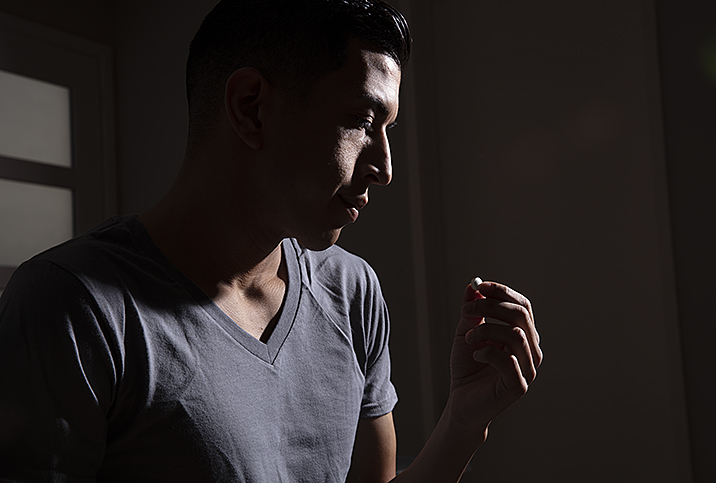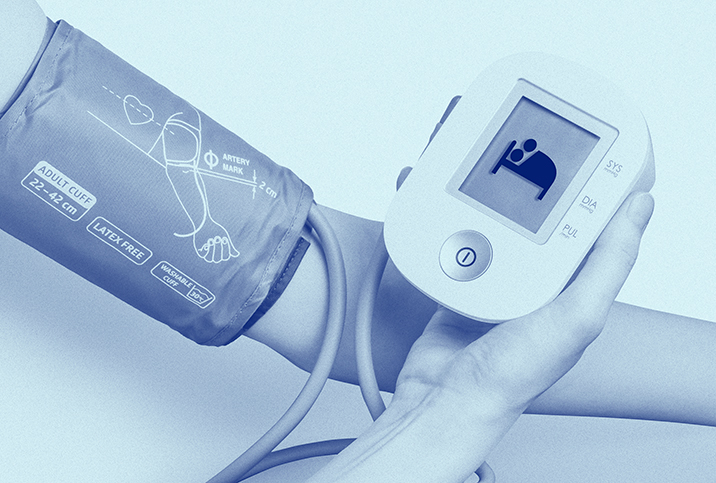Your Inability to Climax Could Be Due to High Blood Pressure

It's well known that high blood pressure is linked to erectile dysfunction (ED), but it wasn't until about 10 years ago that researchers drew a similar connection to female sexual dysfunction (FSD). Understanding how high blood pressure impacts your sex life can help you find the treatment you need.
What causes high blood pressure?
High blood pressure is caused by a narrowing of your arteries, which happens as a result of long periods of stress or plaque buildup caused by poor diet and inactivity. As the arteries narrow, your heart continues to pump the same amount of blood, but the blood has more difficulty flowing regularly because there is less space to do so.
Ultimately, the pressure can put a strain on your heart, which increases your chances of a stroke, a heart attack and heart disease, in addition to negatively impacting your sex life. Fortunately, with early diagnosis, these issues can be avoided with proper medical care.
Symptoms of high blood pressure
One of the greatest dangers of high blood pressure is that it often shows no signs until a person has a heart attack, earning it the nickname "the silent killer." This makes it doubly important to check for common indicators, including:
-
Sweating
-
Fatigue
-
Frequent nosebleeds
-
Irregular heartbeat
-
Changes in sleep patterns
-
Dizziness
-
Nervousness
Many of these symptoms are vague or easily attributed to other conditions, which is why they're often overlooked until a doctor connects the dots. You can take two important steps to ensure your blood pressure is monitored. First, see your doctor at least once a year for a checkup. Second, contact your doctor if you notice any changes in your health.
High blood pressure and other cardiac issues are often hereditary, so if you have family members with heart problems, you may want to invest in an at-home blood pressure cuff, which will enable you to monitor your blood pressure throughout the year and document any changes.
Sexual impacts of high blood pressure
Research conflicts as to the exact proportion of women who suffer problems in bed as a result of hypertension. A 2006 study in the Journal of Hypertension found sexual dysfunction in 42.1 percent of women with high blood pressure; the same issues occurred in just less than 20 percent of women with normal blood pressure. However, results vary from study to study.
While research is still in progress to fully understand the physical effects, researchers do agree that high blood pressure can reduce blood flow to the genitalia, which also decreases arousal. Without the appropriate blood flow to vaginal tissue, women will experience a litany of issues including:
-
Difficulty getting and staying aroused
-
Vaginal dryness
-
Painful intercourse
-
Inability to climax
-
Secondary fertility issues
If these symptoms sound familiar and happen consistently over the course of a few months, you may have female sexual dysfunction. The first thing your doctor will do is take your blood pressure to rule out hypertension.
Seeking treatment
If you are experiencing female sexual dysfunction, seek treatment quickly, especially since it may point to a more drastic problem. If your issues indicate high blood pressure, you may be at risk for heart disease, the leading killer of women in the United States.
When you see your doctor, explain your symptoms. Likely, the doctor will first check your blood pressure and order a panel of bloodwork to check your cholesterol and other levels, so they can rule out heart disease and other serious conditions.
If you are diagnosed with high blood pressure, your doctor might put you on medication and will definitely recommend lifestyle changes in an effort to restore your health. For most people, recovery is possible, but for those whose high blood pressure is a secondary issue connected with heart disease, blood pressure medication may be a permanent treatment.
The good news is that with treatment and lifestyle changes, most women experience a higher quality of life.

















